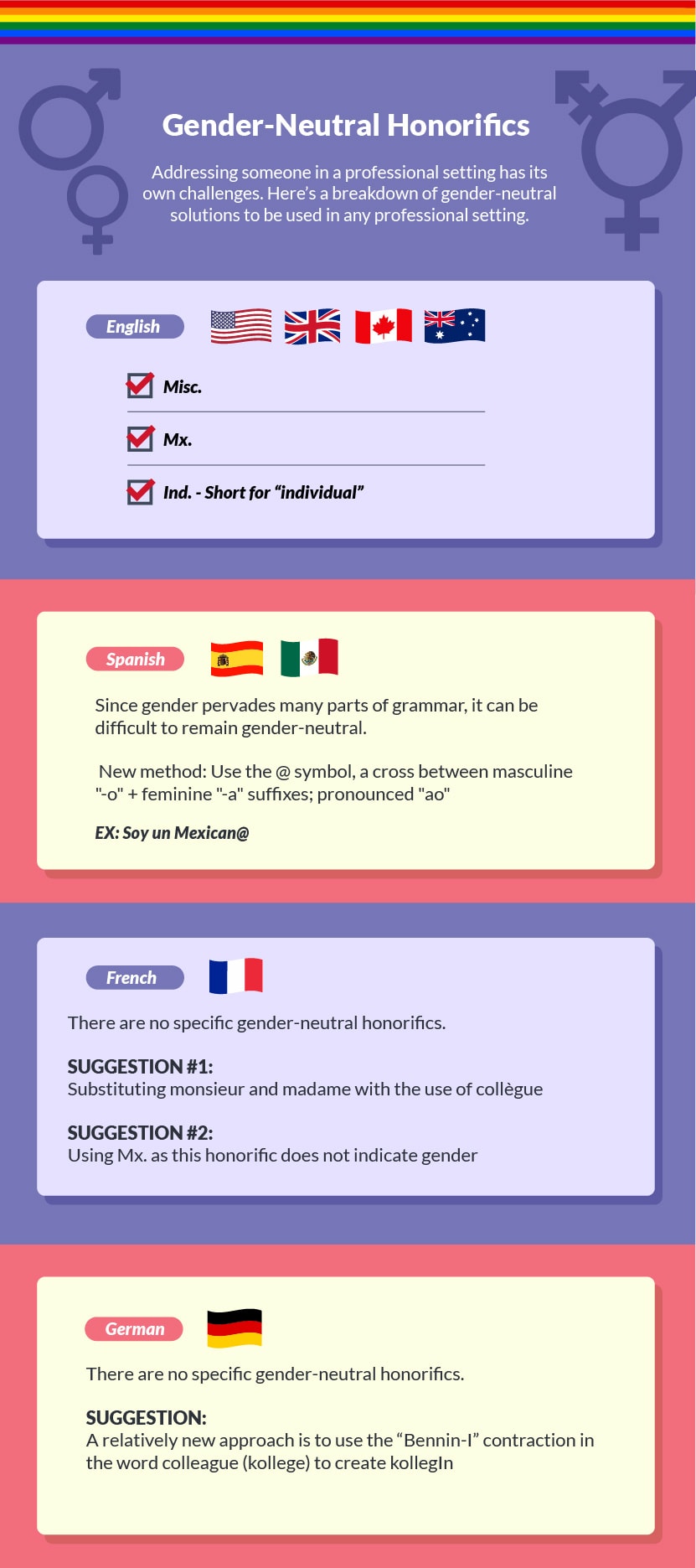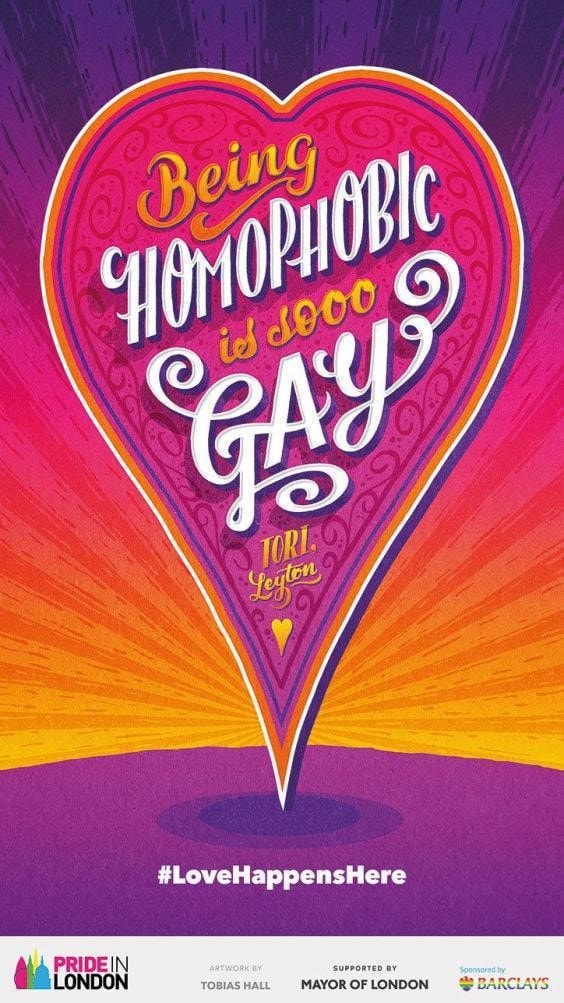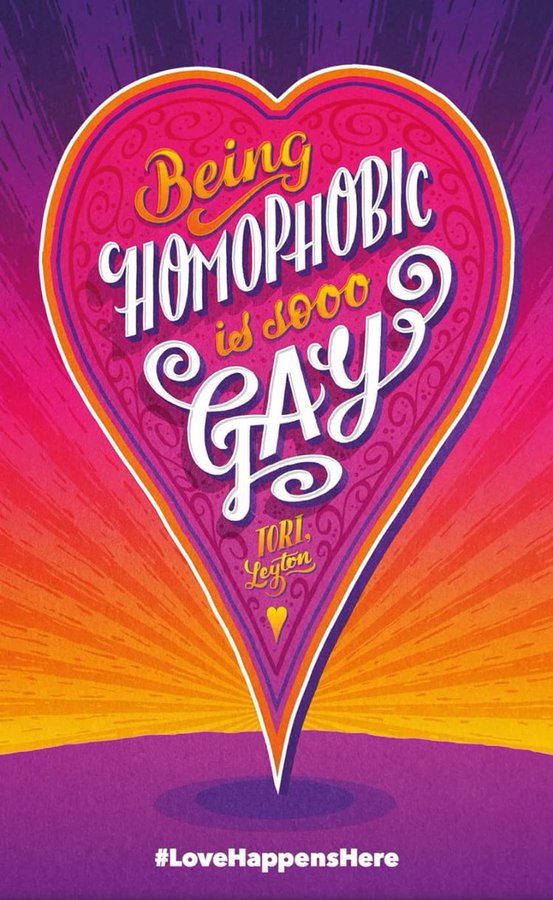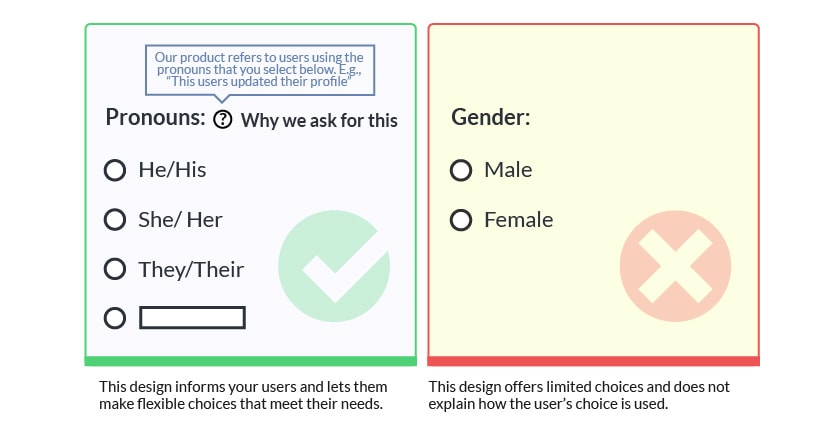USD
The SMB Guide to Success in the LGBTQ Market (2020 Research)

Alex Gentile
39
If you own or manage a small or medium-sized business (SMB), this article is for you. With less resources to play around with, SMBs must pull on all available resources to effectively work with and market to a wide customer base focused on interests, not social demographics.
That’s why SMBs must begin building strategies to effectively market to and work in an LGBTQ-affirming world.
The LGBTQ market is one of the fastest-growing sectors out there, and it’s becoming an increasingly valuable customer base across all industries. In fact, according to GayStar News, a conservative estimate on the size of the global LGBTQ market is $3.7 trillion – that’s a huge market that could be left out of your customer base unless you take the right steps. This community is also particularly sensitive to social issues.
If your business is not perceived to be an ally to the LGBTQ community, its members will use their voice – and their money – to make it known.
Additionally, Dalia Research released a study showing that throughout the European Union, upwards of six percent of the population identify as part of the LGBTQ community.
The question now is how to engage the LGBTQ population effectively.
LGBTQ-Friendly and Affirming
It’s important to understand the difference between being LGBTQ-friendly and affirming.
To be LGBTQ-friendly means establishing your business as a safe space for LGBTQ people to work and shop. Having a diverse workforce, avoiding discriminatory hiring practices, and ensuring all employees understand the importance of using inclusive language are all part of creating a truly LGBTQ-friendly environment.
The urgency for fostering safe spaces is further underlined by hard research. A study by German LGBTQ staffing firm PROUTATWORK found a large percentage of LGBTQ employees feel dissatisfied with the lack of inclusivity in their workplaces. This eventually affects morale and – in most cases – businesses’ bottom line.
There are many ways to gain a reputation of being non-inclusive to the LGBTQ population – but one of the clearest and most effective ways to establish your business as LGBTQ-friendly is to follow the best practices for non-discrimination in terms of sexual orientation and gender, detailed further in this article.
On the customer side, it’s crucial to let LGBTQ customers know you welcome them to your business – whether in person or online. A customer who believes your business is friendly to their community is far more likely to choose your product over your competitors’ offerings, based solely on this one factor. This is especially true when it comes to millennials and Gen Z.
LGBTQ affirmation is another thing entirely. On a first-level basis, it’s accepting that the LGBTQ population is a present part of society, and that we must cater to their needs like all other demographics. But on a deeper level, businesses of all sizes are at the forefront of societal change, and the LGBTQ community needs businesses more than ever.
One mistake many businesses make is acknowledging the LGBTQ community only when everyone else is. When Pride celebrations take place all around the world, many businesses choose this time to essentially “hop on the bandwagon” in terms of marketing and business operations.
But it’s a year-round commitment to this community that makes a business truly stand out. AdWeek and many other marketing industry publications have found that the LGBTQ community notices which companies embody this constant commitment, and which ones only hop onto the international Pride week bandwagon.
This is a mistake most SMBs can’t afford to make. The bad press and negative public perception associated with a lack of fidelity or worse – outright intolerance, for example – can cost you money.
Tasteful LGBTQ-Inclusive and Sensitive Communication
In 2014, former CNN anchor Piers Morgan interviewed transgender rights advocate Janet Mock for the release of her book Redefining Realness.
The interview begins harmlessly with a nice greeting, but viewers will notice that very soon, the interview takes focus on the “otherness” of Ms. Mock – the fact that she is a transgender woman.
Why is this offensive? For starters, most of the interview just focuses on Mock’s gender identity as opposed to the work she is presenting. That means her gender identity is more important and more interesting than her contributions.
You’ll also notice that the subtitle under her name says “Was a boy until age 18,” which is a mischaracterization of Mock’s experiences and again puts undue focus on her gender identity.
Many people in the LGBTQ community find this kind of occurrence belittling and outright offensive – but it’s a mistake many people make every day. For SMBs, these subtle “microaggressions” – small but noticeably offensive instances of discrimination or misunderstanding – can make an LGBTQ person feel disrespected and impact morale.
For owners or managers of businesses of any size, it’s crucial to be aware of how to properly address an LGBTQ person.
A transgender woman – someone who is transitioning or has transitioned into the female gender – most likely wishes for their colleagues to refer to them as a woman, not someone who “was once a man.”
Being LGBTQ-inclusive in communications can be difficult. It’s often small mistakes that create big waves in terms of a company’s reputation. Taking a hard look at how you communicate is essential to establishing your business as LGBTQ-friendly and affirming.
The Applicability Test
Different types of business communication have different objectives, but they all have one overarching goal in mind – being applicable to as many recipients as possible.
For internal communications, the idea of complete applicability is more clearly the objective. This is where the applicability test can truly be useful.
The applicability test aims to solve one question – does the communication deliver the intended message effectively and equally, regardless of age, race, gender, sexual orientation, and otherwise?
Using Inclusive Pronouns
Inclusivity is at the heart of many workplace and marketing issues when it comes to the LGBTQ community. That’s because LGBTQ people often feel like “the other” in professional situations.
Being inclusive means gearing your actions toward applicability for all people. That includes marketing practices and – perhaps more importantly – operational practices within your business.
The recognition of the widening definition of gender is one area where SMBs typically are not inclusive. Expressions and definitions of gender have expanded greatly as the understanding of the LGBTQ community has increased, which calls for new societal norms to take place in and out of the workplace.
Many people identify as male or female, but more people are identifying as non-binary – this means they do not identify with either gender. As is more often the case, non-binary people are starting to use they/them pronouns as opposed to he/his or she/her.
Addressing someone in a professional setting has its own challenges. For instance, we often use honorifics when addressing someone in a professional setting. Here’s a breakdown of gender-neutral solutions that can be used in any professional setting for English, French, Spanish, and German speakers:
It’s OK to Ask
It can be confusing to know how to properly address someone in a professional setting.
It’s always okay to ask someone privately what their pronouns are. Far more often than not, people will appreciate that you were considerate enough to ask.
The point here is that there is nothing to lose by making internal communications more applicable to more people, or by using someone’s correct pronouns in direct communication.
Making the move toward gender-neutral pronouns and finding out a particular person’s gender is an incredible way for SMBs to become more LGBTQ-inclusive and friendly in their day-to-day operations.
Marketing to LGBTQ Audiences through Email, Social Media, and Online Forms
Many of your customers could be part of the LGBTQ community, so developing marketing content that is applicable to everyone is crucial.
Email Marketing
Many companies make assumptions as to who is using their products. Sometimes, LGBTQ people are not incorporated into product marketing plans, so advertising campaigns miss out on – as stated above – a nearly $3.7 trillion market.
For instance, the cosmetics industry is dominated by the pursuit of women’s money, but transgender women are also potential buyers of these products.
How can you reach out to the entire spectrum of people who might want to purchase your product?
Get neutral – Consider using gender-neutral pronouns such as Mx., or doing away with pronouns altogether.
Frame your message – Understand that any and all types of people are potential buyers of your products.
Be diverse – When attaching media in emails, ensure they express the widening definitions of love, family, and similar concepts to include LGBTQ people.
Social Media
SMBs can use social media as a way to cheaply and effectively market to their customers, and doing right by the LGBTQ community can open up a whole new market for your business.
Whether you use Facebook, Twitter, Instagram, LinkedIn, or any combination of these, keep in mind that LGBTQ customers across the board use social media to find and interact with brands who support their community. The ease of sharing social media posts can also put your dedication to LGBTQ people on blast.
Yet, users’ ability to share content can have negative consequences, especially when something reaches viral status.
Take for instance what happened with the Twitter account @prideinlondon – they shared poster images that they believed would foster understanding between the straight and LGBTQ communities, with a little touch of humor thrown in.
What this actually caused was a social media backlash because the slogan uses the term “gay” as derogatory.
You're not gay, though, so once you've cleared that up – what was it, your shoes, or your love of disco? – you get to just carry on.
242 people are talking about this
This and other images caused a negative response so large that @prideinlondon issued a long and exhaustive apology.
Fortunately, there are cases when brands make the right choice in marketing to LGBTQ audiences, especially when the message is based on building relationships and expressing support. This Starbucks ad, which ran during Pride month in 2018, doesn’t try to sell coffee. It’s a perfect example of relationship marketing at its best:
How can SMBs use social media to reach LGBTQ customers?
Use hashtags – Nearly all social media platforms use hashtags (#) to connect posts to particular conversations. Examples of hashtags include #loveislove, #LGBTQ, and #equality. Hashtags often help connect a post to a cause or a specific audience.
Make a statement – Not all posts need to sell a product. As people are increasingly choosing brands that support their worldview, making a statement can show current and potential LGBTQ customers you stand behind them.
Monitor posts for negative comments – Sometimes people who are anti-LGBTQ will post offensive comments. When this happens, it’s crucial for your business to show solidarity with the LGBTQ community.
Use hashtags – Nearly all social media platforms use hashtags (#) to connect posts to particular conversations. Examples of hashtags include #loveislove, #LGBTQ, and #equality. Hashtags often help connect a post to a cause or a specific audience.
Make a statement – Not all posts need to sell a product. As people are increasingly choosing brands that support their worldview, making a statement can show current and potential LGBTQ customers you stand behind them.
Monitor posts for negative comments – Sometimes people who are anti-LGBTQ will post offensive comments. When this happens, it’s crucial for your business to show solidarity with the LGBTQ community.
Online Forms
Many SMBs use online forms to obtain important information about their customers for marketing purposes. If used correctly, online forms can shape the way you communicate with your customers as well.
Yet, one major mistake companies make when creating online forms is asking for inappropriate information, or asking in an inappropriate way.
Take a look at the picture below. Do you know which is the more appropriate approach to collecting gender information?
First, the three choices cover the entire spectrum of generally-accepted pronouns. People in the LGBTQ community sometimes do not align with a particular gender, and the form on the left acknowledges this. Additionally, there is a space where someone can enter their desired pronouns if they are not listed.
Next, notice the “Why We Ask for This” pop-up. Asking for pronouns means asking for gender information, which some people regard as sensitive information. The pop-up ensures the potential customer that the pronoun information they provide is only used for one simple purpose – to help the business automatically refer to the user by their pronoun.
When you create online forms, remember these two things:
- Be transparent – Always be upfront about why you are asking users for their information, especially when asking for potentially sensitive information such as gender pronouns.
- Be inclusive – Design your forms so that people all across the LGBTQ spectrum can answer.
Video Campaigns and Commercials
Video campaigns are where SMBs can gain a competitive edge over competitors. Video can tell a detailed story in just a few seconds, to drive sales or express your company’s values.
When marketing to LGBTQ audiences, many of the same rules from other marketing methods apply. Avoiding stereotypes and treating the LGBTQ customer with the same respect as all other markets is paramount to converting these customers into sales and avoiding potential public relations disasters.
Here’s an example of toothpaste company Colgate creating an effective campaign that shows where the company stands on LGBTQ people:
What are some things you notice about this video?
If you were watching closely, you’d notice the subtlety Colgate uses in directly addressing the LGBTQ community. This ad, which ran in Mexico, expresses a family’s acceptance of two gay men moving in together.
What this video doesn’t do is concentrate on their relationship. The ad is not about the two men being gay – it’s about how family love knows no bounds. This drives Colgate’s message home: regardless of who you are, you have their support. It shows that being gay is a normal part of some families’ lives.
We can see another incredible example of normalizing and legitimizing LGBTQ people in this IKEA ad:
Again, the fact that the women are lesbians is not at all a focal point. The rather casual approach to showing two women in an intimate relationship does not over-emphasize the fact they are LGBTQ.
But sometimes, companies make bad choices when they engage the LGBTQ audience. See if you can identify why this next ad, from British airline company Silverjet, may be problematic:
Why is this a bad thing?
First and foremost, it assumes that lesbian couples can only think of one thing when there are women-only bathrooms – using them for sexual purposes. As opposed to being a humorous element, it paints lesbians as explicitly sexual.
Second, the advertisement uses this stereotype to sell a service that in and of itself is not sexual. Thus, it mischaracterizes an entire group of people for financial gain.
If you are thinking of creating a video or television commercial for your SMB to engage the LGBTQ population, here are a few things to keep in mind:
Avoid stereotypes – LGBTQ people have been suffering the effects of stereotyping for as long as anyone can remember. Using stereotypes not only dilutes the pain and suffering caused by that struggle, but takes a point of pain and cheaply utilizes it for financial gain.
Avoid “otherness” – In our day and age, LGBTQ people want to be treated just like everyone else. In the IKEA and Colgate ads, there is no real emphasis on the couples’ sexuality, which in turn, normalizes them.
Avoid “cheap laughs” – Nobody wants a company to poke fun at their struggles, hardships, or realities. Doing the same to LGBTQ people is offensive, especially considering that there are plenty of examples to the contrary.
Creating an Inclusive Brand Image
Changing your marketing approach is a big task, but one that is not impossible.
In order to make your brand image more inclusive, you need to ask yourself a few questions:
- Does my company represent LGBTQ people in its marketing?
- If it does, do the marketing materials avoid stereotypes?
- Are there opportunities to market to both LGBTQ and non-LGBTQ people at the same time?
If you or your marketing manager answer “No” to any of these questions, it’s time to reassess your marketing practices. The changes required to be more inclusive can lead to big dividends later on. Remember, LGBTQ people are a $3.7 trillion market.
SMBs who leave the LGBTQ population out of the equation will, in due time, be left behind by companies that do.
In order to change your marketing practices to effectively court the LGBTQ community, here are a few steps any SMB can take:
- Include LGBTQ people – In video content, voice content, and social media. Feature LGBTQ couples or individuals in commercials, and show that your products and services are for them, too.
- Incorporate LGBTQ people – In almost any completely hetero-normative advertisement, whether online video or television commercial, there is an opportunity to include LGBTQ people.
- Use focus groups and market research – Oftentimes, glaring inconsistencies in marketing are caught by customers. Consider conducting market research or running focus groups on your advertising to see what customers – especially potential LGBTQ customers – think about your advertising strategy.
It’s good business, and good business leads to a better world.
Creating an LGBTQ-Inclusive Workplace Conduct Policy
Now that we’ve covered both fostering LGBTQ-friendly workplace communication and creating LGBTQ-friendly marketing strategies, the only thing left is to ensure the work environment is safe and accepting of LGBTQ people.
SMBs – and any size business, really – should have a clear and understandable document that spells out its workplace conduct policy. There are three main points all proper policies that protect LGBTQ people cover:
Harassment – Harassment is subjecting a person to unwanted attention based on a sensitive subject. This can include:
- Language of a sexual nature
- Threats based on gender, gender expression, or sexual identity
- Unacceptable physical contact
- Hostility based on gender, gender expression, or sexual identity
Discrimination – Discriminating against someone for their gender, gender expression, or sexual identity is strictly prohibited by law in many countries, and should also be in any workplace conduct policy.
Bullying – Any form of intimidation or unwanted behavior that takes place because of someone’s gender, gender expression, or sexual identity should be strictly prohibited. Online or offline bullying can include:
- Hostile encounters
- Publicly shaming someone
- Distributing inappropriate materials about someone
When you develop your workplace conduct policy, make sure it is clearly displayed so that not one single employee can say they were unaware of the rules regarding discrimination against LGBTQ people.
Be the Change You Want to See in the World
Now that we’ve covered internal communications, marketing, and workplace conduct in terms of LGBTQ people, let’s review the three biggest key takeaways:
- Crucial to Success – LGBTQ people, whether as employees or customers, are a valuable part of any business’ bottom line.
- Consequences Are Real – Companies who make light of the issues surrounding LGBTQ people can suffer operational inefficiency, lose market share, and face legal ramifications.
- Celebrate LGBTQ People – As a business moving forward with the social and societal trends of today’s world, you need to remember that LGBTQ people – like any other group – are equally deserving of being celebrated.
Even small businesses can take steps to be on the right side of history:
Sponsor LGBTQ Events – Invite employees to Pride Month celebrations, or even hold events in your place of business.
Educate – Teach employees how to be more accepting and affirming of LGBTQ people whenever possible.
Be Willing – Keep an open mind about how to properly manage LGBTQ employees’ concerns, market to LGBTQ audiences, and to further deliver on promises to protect LGBTQ employees and customers alike.

Alex Gentile
Al Gentile is a freelance copywriter and journalist with years of experience writing for travel, technology, LGBTQ issues, and music. He currently runs his own freelance content business, along with a passion project selling vinyl records.
Kaig Lightner
Fantastic article! Just a small edit: remove the word “preferred” when referring to pronouns and gender. I’m a queer trans person and my gender identity and pronouns are just who I am, not what I prefer. Just as a cisgender person’s pronouns and gender. Otherwise this article is full of useful info. I really like the examples of companies doing great work and where they fall short. I will be relying on these examples as I do consulting work with companies to Ben more inclusive of all genders. Thanks! Kaig
Reply
RELATED POSTS
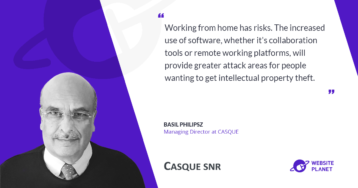
Securing Your Digital Operations with Identity Assurance- Interview with Basil Philipsz

Ditsa Keren
22
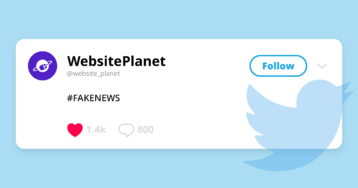
Identifying Fake News in the Time of Corona – Ultimate Guide to Avoid Panic and Indifference

Sharon Hurley Hall
132

Meet Kontentino, The Ultimate Collaboration Tool For Social Media Teams

Ditsa Keren
37
